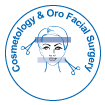Research Article
Oral Squamous Cell Carcinoma in Moroccan Population: A Cartographic Study
Saliha Chbicheb, Narjiss Akerzoul* and Wafaa El Wady
Faculty of Dentistry of Rabat, Mohammed V University, Rabat, Morocco
- *Corresponding Author:
- Narjiss Akerzoul
Faculty of Dentistry of Rabat
Mohammed V University, Rabat, Morocco
Tel: +2126 69 10 53 25
E-mail: narjissakerzoul87@gmail.com
Received September 09, 2015; Accepted September 18, 2015; Published November 16, 2015
Citation: Chbicheb S, Akerzoul N, El Wady W (2015) Oral Squamous Cell Carcinoma in Moroccan Population: A Cartographic Study. Cosmetol & Oro Facial Surg 1:102. doi:10.4172/jcofs.1000102
Copyright: © 2015 Chbicheb S, et al. This is an open-access article distributed under the terms of the Creative Commons Attribution License, which permits unrestricted use, distribution, and reproduction in any medium, provided the original author and source are credited.
Abstract
Purposes: Study the epidemiological and histopathological profile of the oral cancers in Adult patients in many Oncologic Centers and Hospitals in Morocco. Our aim is to define the importance of Oral Cancer, and also to describe the oral cancers in adult patients, theirs frequences and theirs histopathological characteristics. Materials and methods: This is a cartographic study review of patients with oral cavity cancers who viewed the ENT department at the Specialized Hospital of Rabat, the Instruction Military Mohammed V Hospital (IMMVH) of Rabat, and other Oncologic Centers in various cities of the Kingdom of Morocco, during the period from January 2005 to December 2012. We did collect 1453 cases. The collected information was recorded on a pre-operation plug. Results: In our study, patients whose age is above 40 years were the age bracket most affected by the oral cancer with 91.3%, while patients whose age is less than 40 years old represented only 8.7% of the cases affected by the oral cavity cancer. In our study, males accounted for 63% of all cases. The pattern associated with the tumor was the most reported in 64% of cases, including the swelling and ulceration. For the histological type of the tumor in our sample, Oral Squamous Cell Carcinoma (OSCC) was the most dominant histological type in 78% of cases. The predominant consultation period was later 6 months with 57%, according to our sample. Tobacco was the most dominant risk factor with 41% of all cases. In our sample 76.6% of patients had as a major promoting factor a poor oral health status, and prolonged sun exposure was mentioned in 13.3% of cases. Conclusion: Our results correlate well with previously published clinicopathological data on comparable studies, which is important when considering the applicability of results from biomarker studies performed on this material compared to other retrospective studies, and vice versa.

 Spanish
Spanish  Chinese
Chinese  Russian
Russian  German
German  French
French  Japanese
Japanese  Portuguese
Portuguese  Hindi
Hindi